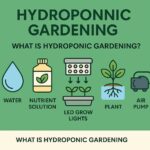If you’re like me, you probably find yourself torn between two fantastic activities: hiking and running. Both offer incredible benefits for your physical and mental well-being, but deciding which one is better can be a challenging task. Don’t worry, though, because, in this detailed guide, I’ll dive deep into the debate of hiking versus running and explore the unique advantages each activity brings to the table.
Before I get started, let me share a personal experience that sparked my interest in this topic. Last summer, I found myself standing at a crossroads, contemplating whether to lace up my running shoes or grab my backpack for a hike. The decision was not easy, as both options held immense appeal. It got me thinking, “Is hiking better than running, or is running the ultimate exercise powerhouse?” So, join me in this exploration as I compare the benefits of hiking and running, helping you make an informed choice based on your preferences, goals, and lifestyle.
Get ready to lace up those hiking boots and tie your running shoes tight because you’re about to embark on an adventure to discover which outdoor activity reigns supreme. Let’s delve into the benefits of hiking and running and uncover the secrets they hold for our physical and mental well-being.
Benefits of Hiking:
Lace up your boots, breathe in the fresh air, and get ready to explore the astounding benefits of hiking. In this section, I’ll unveil the secrets hidden within nature’s embrace and discover why hiking is more than just a walk in the park.
As you venture into the great outdoors, you’ll soon realize that hiking is a gateway to a multitude of physical and mental transformations. From strengthening your cardiovascular system and toning your muscles to finding solace in nature’s serene beauty, hiking offers a plethora of advantages that go beyond the surface. So, let’s dive into the depths of the hiking experience and unravel the incredible benefits awaiting you on the trail.
Physical Benefits
- Cardiovascular fitness improvement: Hiking is a fantastic way to get your heart pumping and improve your cardiovascular health. The varying terrains and inclines challenge your body, making your heart work harder, increasing blood circulation, and ultimately improving your overall cardiovascular fitness.
- Muscle strengthening and toning: Hiking engages a wide range of muscles in your body, especially in your legs, hips, and core. The uneven terrain and inclines require constant adjustments and balance, which work your muscles in unique ways. Over time, this helps to strengthen and tone your lower body muscles, giving you more stability and endurance.
- Joint-friendly exercise: Unlike high-impact activities such as running, hiking is generally gentler on your joints. The natural cushioning of the ground, such as dirt or grass, absorbs some of the impacts, reducing the stress on your joints. This makes hiking an excellent option for those who may have joint issues or want a low-impact workout.
Mental and Emotional Benefits
- Stress reduction and relaxation: Spending time in nature and immersing yourself in the serenity of the great outdoors has a calming effect on the mind. Hiking allows you to disconnect from the hustle and bustle of daily life, reducing stress levels and promoting relaxation.
- Mood enhancement and mental clarity: The combination of physical exercise, fresh air, and beautiful scenery can work wonders for your mood. Hiking releases endorphins, also known as the “feel-good” hormones, which can boost your mood and leave you feeling refreshed and rejuvenated. It also provides an opportunity for mental clarity and introspection, allowing you to clear your mind and gain perspective.
- Connection with nature and improved overall well-being: Hiking offers a unique chance to connect with nature on a deeper level. Breathing in the fresh air, taking in the awe-inspiring landscapes, and being surrounded by natural beauty can have a profound impact on your overall well-being. It helps foster a sense of gratitude, awe, and appreciation for the wonders of the world around us.
Social Benefits
- Opportunities for bonding with friends and family: Hiking is a wonderful activity to enjoy with loved ones. It provides an opportunity to bond with friends and family while exploring the great outdoors together. Sharing the challenges and triumphs of a hike can create lasting memories and strengthen relationships.
- Chance to meet like-minded individuals: Hiking trails often attract a vibrant community of outdoor enthusiasts. It’s not uncommon to strike up conversations and make new friends along the trail. Hiking can help you expand your social circle and connect with like-minded individuals who share your passion for nature and adventure.
- Group hiking benefits: Joining a hiking group or club can offer additional benefits. Group hikes provide a sense of camaraderie, safety, and the opportunity to learn from experienced hikers. You can exchange tips, discover new trails, and enjoy the collective energy and motivation of the group.
Hiking offers an array of physical, mental, and social benefits that make it an enticing outdoor activity. From improving your cardiovascular fitness to boosting your mood and fostering connections, hiking has the potential to transform your well-being. But before you jump to any conclusions, let’s explore the benefits of running and see how it stacks up against hiking.
Stay tuned for the next section, where I’ll unravel the advantages of running and help you make an informed choice.
Benefits of Running
Strap on your running shoes and prepare to embark on a journey that will not only transform your body but also ignite your inner fire. In this section, I’ll explore the extraordinary benefits of running, uncovering why this timeless activity has captivated the hearts and minds of fitness enthusiasts worldwide.
Running isn’t just a mere exercise; it’s a powerful catalyst for change. As you lace up and hit the road or trail, you’ll discover a plethora of physical and mental rewards that extend far beyond the finish line. From torching calories and sculpting your physique to experiencing the euphoric rush of endorphins, running is a gateway to a world of possibilities.
So, join me as I delve into the thrilling realm of running, unlocking the secrets to increased endurance, elevated mood, and a stronger self.
Physical Benefits
- Improved cardiovascular endurance: Running is a high-intensity aerobic exercise that significantly improves your cardiovascular fitness. Regular running sessions can strengthen your heart, increase lung capacity, and enhance overall endurance.
- Weight loss and calorie burning: Running is an effective calorie-burning activity, making it a great option for those looking to shed extra pounds. Running at a moderate to high intensity can help create a calorie deficit, leading to weight loss and improved body composition.
- Bone density improvement: Running is considered a weight-bearing exercise, which means it puts stress on your bones, stimulating bone growth and strengthening. It can help prevent conditions like osteoporosis and improve bone density, especially in weight-bearing areas like the legs and hips.
Mental and Emotional Benefits
- Enhanced mental toughness and discipline: Running requires mental resilience, pushing you to overcome challenges and stay motivated. It builds mental toughness, determination, and discipline, which can positively impact other areas of your life beyond running.
- Release of endorphins and runner’s high: Running has a remarkable ability to release endorphins, neurotransmitters that promote feelings of happiness and euphoria. This release of endorphins can lead to a “runner’s high,” a sense of exhilaration and well-being that can elevate your mood and reduce stress.
- Increased self-confidence: Regular running can boost your self-esteem and confidence. As you set and achieve running goals, whether it’s running a certain distance or completing a race, you’ll experience a sense of accomplishment that can spill over into other aspects of your life.
Convenience and Time Efficiency
- No need for special equipment or location: Running requires minimal equipment—just a good pair of running shoes—and can be done almost anywhere. Whether you’re in a bustling city or scenic countryside, you can lace up and hit the pavement, making it a convenient and accessible activity.
- Shorter time commitment for similar calorie burn: Compared to many other forms of exercise, running offers a high calorie-burning potential in a shorter amount of time. A 30-minute run can burn a significant number of calories, making it a time-efficient option for those with busy schedules.
Running provides a host of physical and mental benefits that make it a popular choice among fitness enthusiasts. From improving cardiovascular health and burning calories to boosting mental resilience and instilling self-confidence, running has the power to transform your overall well-being. However, before you reach a conclusion, let’s take a step back and consider various factors that can help you decide between hiking and running.
Factors to Consider When Choosing Between Hiking and Running
Choosing between hiking and running involves careful consideration of various elements, from your fitness aspirations and joint health to time constraints and personal inclinations. By delving into these crucial factors, I’ll equip you with the knowledge and insights needed to make a decision that’s tailored to your unique circumstances.
So, let’s embark on this exploration together, unraveling the key considerations that will guide you toward the perfect outdoor adventure. Whether you’re seeking the serenity of nature, the thrill of a runner’s high, or a balance between the two, I’ll help you navigate this decision-making process with confidence. Prepare to embark on a journey of self-discovery, as I unlock the secrets that will lead you to the activity that resonates with your spirit and sets you on a path to fulfillment. Let’s embark on this exciting exploration of factors to consider when choosing between hiking and running.
Personal Fitness Goals
- Weight loss and body composition: If your primary goal is to lose weight or improve body composition, both hiking and running can be effective. Running tends to burn more calories per minute due to its higher intensity, making it potentially more efficient for weight loss. However, hiking can also contribute to weight loss when done consistently and on challenging terrains.
- Cardiovascular fitness and endurance: Both hiking and running offer cardiovascular benefits, but running is generally more intense and can lead to greater improvements in cardiovascular endurance. If you aim to enhance your cardiovascular fitness, running might be the preferred choice.
- Muscle toning and strength: Hiking engages various muscles, particularly in the lower body and core, leading to muscle strengthening and toning. However, running primarily focuses on the lower body muscles. If toning and strengthening specific muscle groups is your goal, hiking may provide a more balanced workout.
Impact on Joints and Injury Risks
- Evaluating individual joint health: Consider the condition of your joints, especially if you have pre-existing joint issues or injuries. Running is a higher-impact activity that puts more stress on your joints, particularly knees, and ankles. Hiking, on the other hand, is generally gentler on the joints, as the natural terrain and softer surfaces can provide better shock absorption.
- Impact and stress on joints during running: Running can potentially lead to overuse injuries, such as shin splints or stress fractures, especially if you increase intensity or mileage too quickly. If you’re prone to joint-related injuries or have concerns about high-impact activities, hiking can offer a lower-risk alternative while still providing a challenging workout.
Time Constraints and Lifestyle
- Assessing available time for exercise: Consider the time you can allocate to your outdoor activities. Running often requires less time commitment, as you can get an effective workout in a shorter duration. Hiking, especially on longer trails or more challenging terrains, may require more time investment.
- Location and accessibility of trails or running paths: Evaluate the availability of suitable hiking trails or running paths in your area. If you have easy access to scenic trails, parks, or natural areas, hiking may be a convenient and enjoyable option. On the other hand, if you have limited access to trails or prefer the convenience of running from your doorstep, running might be the more accessible choice.
Personal Preferences
- Enjoyment of nature and outdoor environments: Consider your affinity for nature and outdoor surroundings. Hiking allows you to immerse yourself in natural landscapes, enjoy stunning views, and explore new trails. If you find solace and joy in nature, hiking can provide a more fulfilling experience.
- Preference for solitude or social interactions: Think about whether you prefer exercising alone or with others. Running can be a solitary activity, providing time for introspection and solitude. Hiking, on the other hand, offers opportunities for group hikes, social interactions, and shared experiences with friends or fellow hikers.
- Consideration of personal motivations and interests: Reflect on what motivates and inspires you. Are you driven by competition, personal goals, or the desire for adventure? Both hiking and running can fulfill these motivations, but understanding your personal interests and what brings you joy will help guide your choice.
Exploring Switchbacks in Hiking: What Are They and How to Tackle Them?
Conclusion
As I wrap up this exploration of hiking versus running, it’s clear that both activities offer remarkable benefits for your physical and mental well-being. Hiking provides an excellent opportunity to connect with nature, strengthen your muscles, and enjoy social interactions while running boosts cardiovascular endurance, aids in weight loss, and cultivates mental resilience.
Ultimately, the best choice between hiking and running depends on your individual goals, preferences, and circumstances. If you prioritize low-impact exercise, appreciate nature, and desire a slower-paced activity with social opportunities, hiking might be your go-to. On the other hand, if you seek high-intensity workouts, time efficiency, and enjoy the freedom of running solo, running may be your ideal choice.
Remember, you don’t have to limit yourself to just one activity. Both hiking and running can complement each other, allowing you to experience the best of both worlds. So, lace up your shoes, hit the trails or the pavement, and embark on an adventure that suits you best. Happy exploring and happy running!








